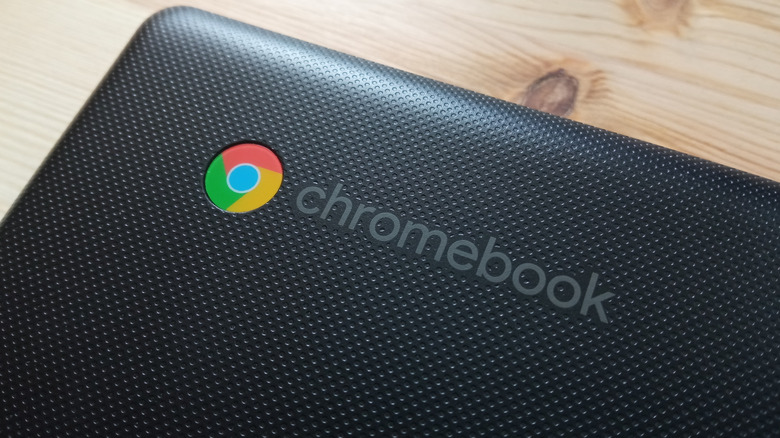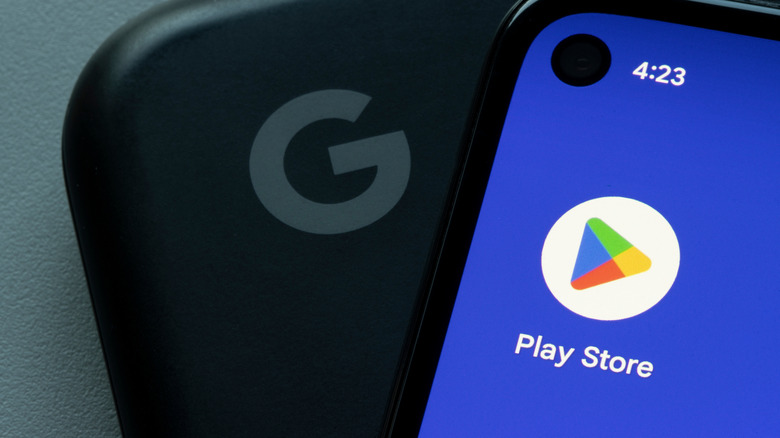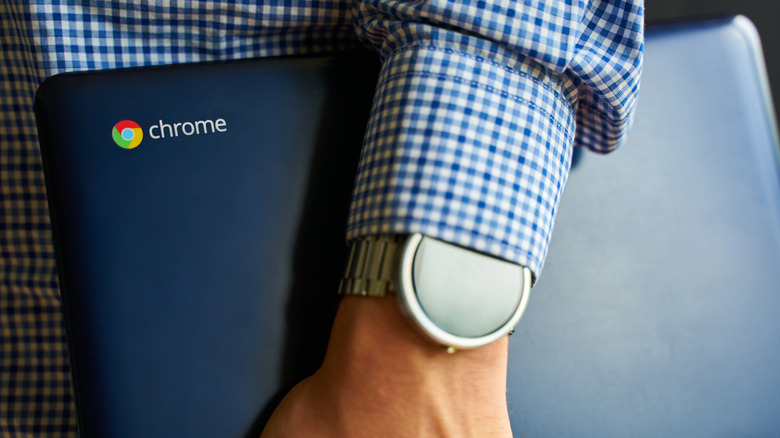Your Chromebook May Run Android Instead Of Chrome OS One Day: Here's What That Means
Chromebooks may be getting their biggest shake-up ever in the near future as Google prepares to merge large portions of ChromeOS onto Android. The no-frills, browser-based operating system has had plenty of success, especially in education where students have destroyed Chromebooks with pencils, and as an easy option for users who just need a way to get online, send emails, or do light office work. But ChromeOS distribution numbers are nonexistent compared to those for Android, the most dominant OS in the world, and Google is now making changes that could soon see large portions of ChromeOS replaced with Android.
ChromeOS was initially developed within a year or so of Google's Android acquisition. The world was very different back then, as was the way people interacted with computing surfaces, and ChromeOS is very different from Android. At the time, Android was not the same kind of priority for Google that it is today, where the company is leveraging Android's popularity as a primary delivery mechanism for new AI products. Those factors may help explain the decision by Google last year to rebuild ChromeOS atop an Android foundation.
Shortly after Google reorganized its hardware and software divisions into a single Platforms and Devices unit in 2024, the company announced that it was working on a major change to bring ChromeOS onto the Android kernel, essentially installing a new engine under the hood. However, Google admitted that the updated OS wouldn't be ready for some time. So, just when is it coming, and how will the changes affect Chromebook owners?
ChromeOS will be rebuilt on top of the Android kernel at some point
In a ChromeOS developer blog post from June 2024, Google announced that it had started work on migrating the Android tech stack into ChromeOS. The browser-based operating system already supports Android apps on certain hardware, but this would be a far more sweeping overhaul that replaces large portions of ChromeOS with Android DNA. Per that blog post, "To continue rolling out new Google AI features to users at a faster and even larger scale, we'll be embracing portions of the Android stack, like the Android Linux kernel and Android frameworks, as part of the foundation of ChromeOS."
As Google points out, unifying its two major OSes would simplify adding AI features in front of both user bases as quickly as possible, a major priority as it competes with OpenAI and other companies. "Bringing the Android-based tech stack into ChromeOS will allow us to accelerate the pace of AI innovation at the core of ChromeOS," the post continued, "simplify engineering efforts, and help different devices like phones and accessories work better together with Chromebooks."
And yet, almost exactly a full year after this announcement, Google has been radio silent regarding the ChromeOS to Android transition. Google I/O came and went without a peep on this front. It also didn't come up during Android 16's rollout, which is now in the final stages of its beta program. With Google teasing a desktop mode that was originally spotted in Android 15 and seems to overlap with a lot of ChromeOS functionality, the situation gets even more curious.
When will ChromeOS move to Android?
Since Google foreshadowed these changes, we haven't seen much in the way of a timeline. Now, close to a year after the announcement, it's unclear just how far off this update is. However, Google might want to hurry with the migration since it currently has a legal "sword of Damocles" hanging over Chrome thanks to the antitrust case it lost last year. The U.S. Department of Justice is preparing to impose massive penalties on Google for monopolistic behavior and has proposed a forced sale of Chrome as a likely remedy. It's unclear whether a Chrome sell-off would include ChromeOS, but there's no clear reason it wouldn't.
If Google wants to maintain the foothold ChromeOS has in the entry-level laptop market, switching to a platform it knows it can maintain ownership of is crucial. On the other hand, shifting an OS to an entirely new kernel is incredibly difficult and time-consuming. Regardless, the benefits of baking more Android code into ChromeOS are tantalizing for users of both. Could this finally be what motivates Google to develop a full-fat version of Chrome for Android? Fingers crossed.
Presentations at Google I/O last month entreated developers to make their apps adaptable to multiple devices including Chromebooks. It also showcased a Samsung DeX style windowed mode for Android that comes closer to ChromeOS than any other stock Android experience. However this merge turns out, it's clear that Google is attempting to streamline its platforms to make things simpler for both developers and users.


